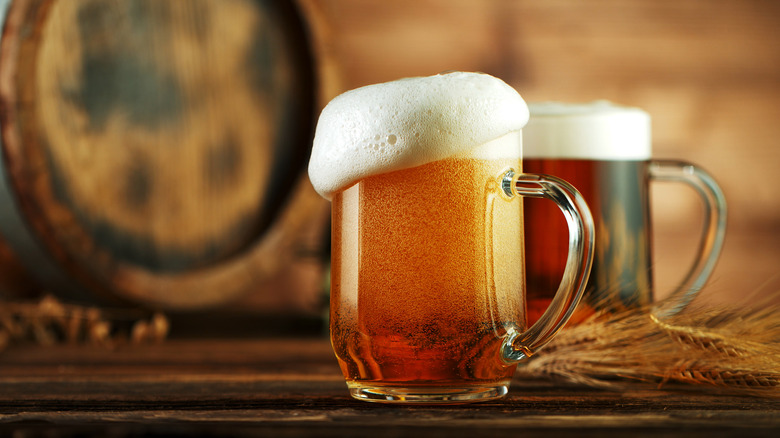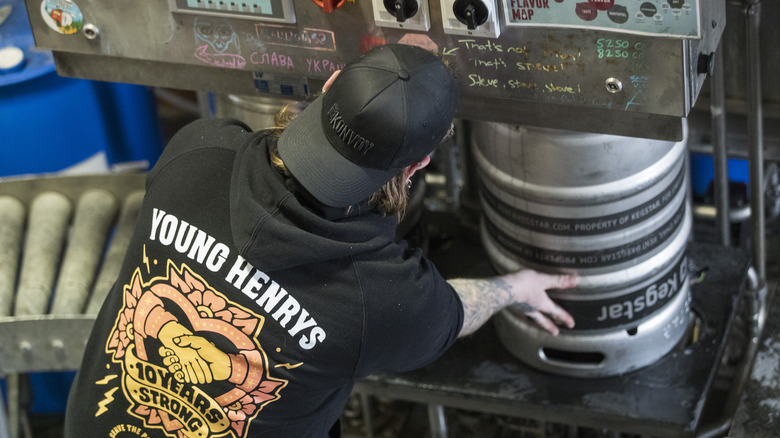The Most Common Reason For Forced Carbonation In Beer
Nothing compares to the sensory experience of sipping on a tall glass of cold beer on a hot summer day. It's like cola for adults without all the sugar. Cool, crisp, and delightful.
Beers wouldn't be the same without that crispiness. Ever noticed how the first thing your mouth senses when you take a sip of beer is a sizzle before the explosion of its aroma and flavor? That's carbonation for you, and it distinguishes beer from other alcoholic beverages. There are a great many varieties of beer, and non-carbonated beers do exist, and per Draft Mag, there are some craft beer drinkers who like their beer with little to no fizz like nitro beer or cask-conditioned beer.
The level of carbonation varies from beer to beer. According to USA Beer Ratings, breweries use a process called "conditioning" to ferment the beer to allow for carbon dioxide to form. Breweries condition their beer in vessels by re-fermenting beer in kegs or bottles. To carbonate, flat beer is primed by adding water and sugars like corn or white sugar before bottling for re-fermentation. The yeast in the bottle acts in the sugar and absorbs byproducts from fermentation and releases carbon dioxide in the process. Another way to do it is by allowing the wort to ferment and release carbon dioxide in casks.
Natural conditioning of beer requires careful attention, and it can be a lengthy process. Commercial breweries will often ditch the traditional way and force carbonate beer for various reasons.
It all comes down to time
No matter what method brewers use for carbonation, the end goal is the same — to infuse the beer with carbon dioxide for a refreshing taste and fuller mouthfeel. Purists will frown upon it, and of course, it's a matter of preference, but forced carbonation can yield the same results, if not better, as natural carbonation. At least carbon dioxide infusion-wise.
The reason why brewers use the force carbonation method is that it's less time-consuming as compared to natural carbonation and produces sediment-free beer, per Keg King. It all comes down to preference and how soon you want your beer.
Forced carbonation is commonly used for kegs. Northern Brewer recommends refrigerating kegs to make them cool since a cool temperature allows for the carbon dioxide to be diffused into the beer faster and more efficiently. A pressurized CO2 is discharged into the beer and a regulator can be adjusted to the pressure according to the required carbonation rate. Breweries use a PSI chart for a safe process and consistent results. According to BYO, Corny kegs are ideal to force carbonate beer since they can handle high pressures and are safe.
Beer can also be carbonated through spunding. Per Precision Fermentation, spunding, aka pressurized fermentation, is a natural carbonation method that uses a spunding valve that allows brewers to regulate the gas in beer. The valve automatically opens when there is excess gas and closes when the desired carbon dioxide level is reached.

